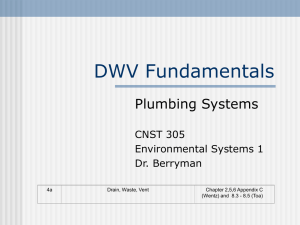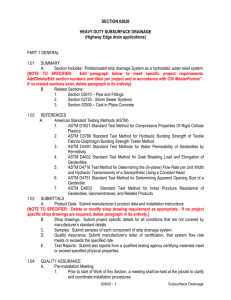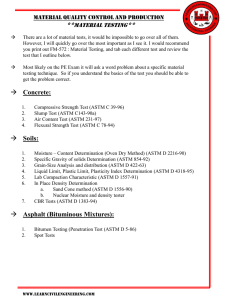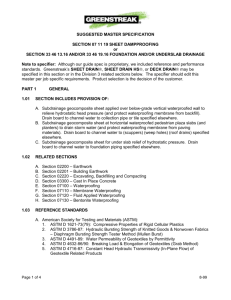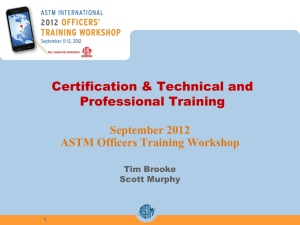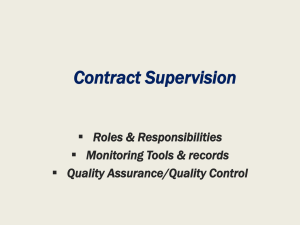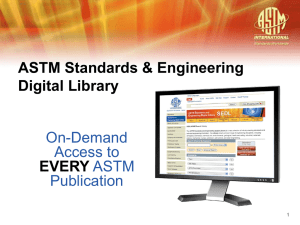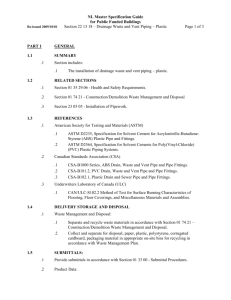Multi-Flow drainage system by Varicore Technologies
advertisement
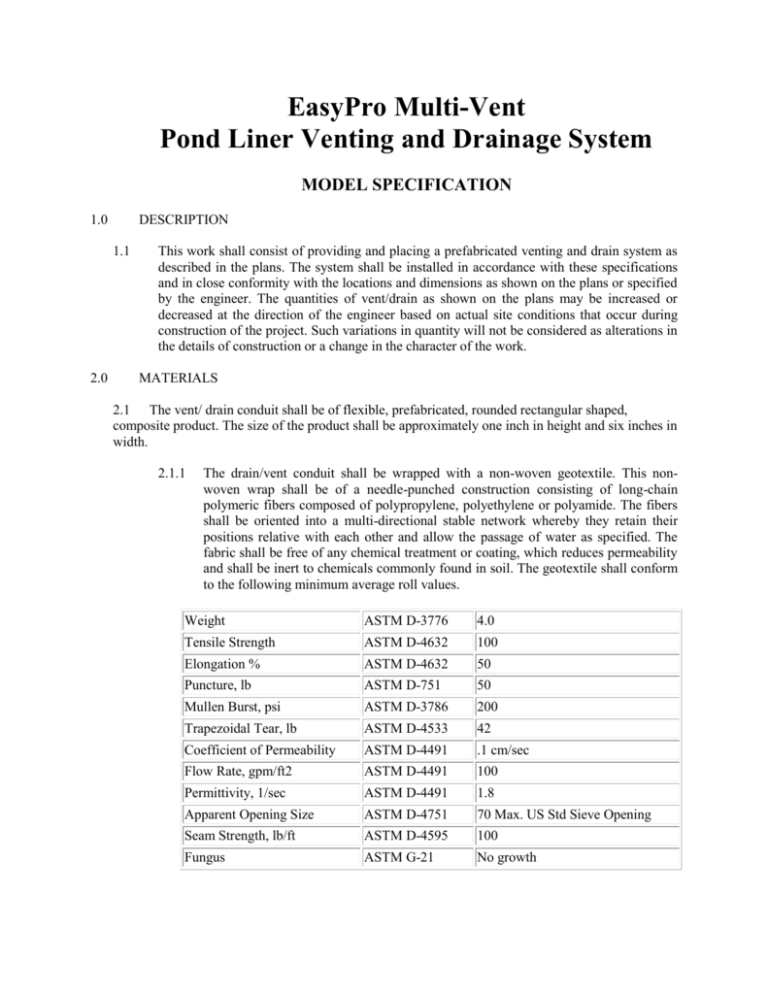
EasyPro Multi-Vent Pond Liner Venting and Drainage System MODEL SPECIFICATION 1.0 DESCRIPTION 1.1 2.0 This work shall consist of providing and placing a prefabricated venting and drain system as described in the plans. The system shall be installed in accordance with these specifications and in close conformity with the locations and dimensions as shown on the plans or specified by the engineer. The quantities of vent/drain as shown on the plans may be increased or decreased at the direction of the engineer based on actual site conditions that occur during construction of the project. Such variations in quantity will not be considered as alterations in the details of construction or a change in the character of the work. MATERIALS 2.1 The vent/ drain conduit shall be of flexible, prefabricated, rounded rectangular shaped, composite product. The size of the product shall be approximately one inch in height and six inches in width. 2.1.1 The drain/vent conduit shall be wrapped with a non-woven geotextile. This nonwoven wrap shall be of a needle-punched construction consisting of long-chain polymeric fibers composed of polypropylene, polyethylene or polyamide. The fibers shall be oriented into a multi-directional stable network whereby they retain their positions relative with each other and allow the passage of water as specified. The fabric shall be free of any chemical treatment or coating, which reduces permeability and shall be inert to chemicals commonly found in soil. The geotextile shall conform to the following minimum average roll values. Weight ASTM D-3776 4.0 Tensile Strength ASTM D-4632 100 Elongation % ASTM D-4632 50 Puncture, lb ASTM D-751 50 Mullen Burst, psi ASTM D-3786 200 Trapezoidal Tear, lb ASTM D-4533 42 Coefficient of Permeability ASTM D-4491 .1 cm/sec Flow Rate, gpm/ft2 ASTM D-4491 100 Permittivity, 1/sec ASTM D-4491 1.8 Apparent Opening Size ASTM D-4751 70 Max. US Std Sieve Opening Seam Strength, lb/ft ASTM D-4595 100 Fungus ASTM G-21 No growth The drain/vent conduit core shall be made of a high-density polyethylene. The core shall be constructed using interconnected corrugated pipes that define and provide the flow channels and structural integrity of the collection system. There shall be no less than 300 perforations per square foot. Perforations shall be evenly distributed on both faces of the core. The geotextile shall function only as a filter and have no structural function. The core of the collection system shall conform to the following physical property requirements. 2.1.2 Thickness, inches ASTM D-1777 1.0 Flow Rate, gpm/ft* ASTM D-4716 29 Compressive Strength, psf ASTM D-1621 (modified sand method) 6000 Perforations / sq. ft. > 300 --* At gradient = 0.1, pressure = 10 psi for 100 hours. 2.1.3 Multi-Vent meets or exceeds these specifications. 2.2 The connectors used with the vent/ drain shall be of a snap together design. In no case shall any venting/drainage product be joined without the use of the manufacturers connector designed specifically for the purpose. 2.3 Transport Pipe for collected water shall be either PVC pipe meeting the requirements of ASTM D-2729 or ASTM F-949, or high-density polyethylene pipe meeting the requirements of AASHTO M252. 3.0 CONSTRUCTION REQUIREMENTS 3.1 The vent/drain collector lines shall be laid horizontally on the prepared base of the pond or lagoon and spaced equal distance apart as determined by the engineer. Typically these lines will run side to side across the narrow width of the storage area. Specific soil and design considerations will dictate line spacing which will vary from fifteen to thirty feet. 3.2 The vent/drain line shall connect to a transport line at the low point of the pond/lagoon and will extend to the membrane retainer area outside of the pond. This will allow collected water to flow by gravity out of the low end of the collections system and transport to either a daylight outlet or pumping station. Vents to atmosphere are to be installed at the upper end of the vent line above the water level. If a geotextile is to be used beneath the membrane, it shall be applied after the vent/drain is in place. 3.3 The capacity of the transport pipe shall be not less than twenty percent of the aggregate flow rate of the venting/drain system. This will be determined by multiplying the number of drain lines emptying into the transport pipe times the specified flow rate of the vent/drain line. Should the engineer specify that the drain/venting system be flush with the grade of the base, so as to eliminate any protrusion for the artificial membrane to lie across, the vent/drain may be laid in a shallow (1” X 7”) depression which has been cut into the base material. 3.4 The collection system shall be securely connected to the transport pipe using connectors approved by the manufacturer. Each venting/drainage system line which runs up the side of the containment area (above the water line) shall be directly vented to the atmosphere. Venting to atmosphere shall be accomplished above the highest anticipated water line using only manufacture approved devices. 3.5 In the event that excessive water flow with the potential of carrying substantial fines into the drain exists, the engineer may choose to surround the vent/drain system with one inch of course sand to act as a filter system. This use of coarse sand (#10 to #30 US standard sieve) has been shown to extend the life of drainage systems when used in clay or silty soils. 3.6 Any damaged section of vent/ drain or outlet lateral shall be replaced or repaired by splicing in an undamaged section of drain before placing the membrane. Copyright 2010 EasyPro Pond Products.
